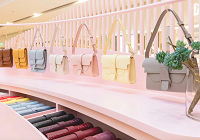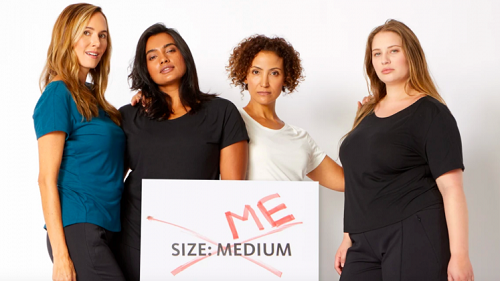 Though earlier fashion brands maintained stoic silence about the existence of labor camps in Xinjiang for fear of businesses being penalized, a new campaign to pressure brands to end ties with factories connected to forced labor is gaining momentum. The issue of forced labor is not confined to Xinjiang region alone. Manufacturers across China are using thousands of Uighur workers under state-sponsored labor transfer programs, in conditions that appear in many cases to be forced labor, says Kelsey Munro, Senior Analyst, Australia Strategic Policy Institute (ASPI).
Though earlier fashion brands maintained stoic silence about the existence of labor camps in Xinjiang for fear of businesses being penalized, a new campaign to pressure brands to end ties with factories connected to forced labor is gaining momentum. The issue of forced labor is not confined to Xinjiang region alone. Manufacturers across China are using thousands of Uighur workers under state-sponsored labor transfer programs, in conditions that appear in many cases to be forced labor, says Kelsey Munro, Senior Analyst, Australia Strategic Policy Institute (ASPI).
With a view to end abuses, EU Parliament member Raphaël Glucksmann, started a campaign on June 27 to pressure brands to end ties with factories connected to forced labor. Based on a March 2020 report by ASPI, the campaign implicated 83 companies as being directly or indirectly involved in forced labor.
factories connected to forced labor. Based on a March 2020 report by ASPI, the campaign implicated 83 companies as being directly or indirectly involved in forced labor.
Brands pledge to end forced labor
To verify these claims, Glucksmann met Adidas and received a signed letter from the brand agreeing to the terms of campaign and a reassurance that henceforth the brand will not source any yarn from the Xinjiang region. Lacoste, which gets supplies from Youngor Textile Holdings, also pledged to cease all activities with suppliers and subcontractors involved in the exploitation of Uighur forced workers, make all of its efforts public and conduct due diligence among its entire production chain in China.
The third brand that pledged to cut ties with factories involved in exploitation of Uighurs workers is Nike. The brand released a statement in March stating that its Taekwang factory stopped recruiting new employees from XUAR [Xinjiang Uighur Autonomous Region] to its Qingdao facility in 2019 and all remaining employees from XUAR have returned home.
Backing on suppliers’ support
However, some brands’ are relying on their suppliers’ support to ensure they not get involved in forced labor in any way. Victoria’s Secret parent company L Brands has directed all suppliers to re-certify that they have read and understood it’s no forced labor policy, including the prohibition on the use of cotton from Xinjiang Uighur Autonomous Region, and any other form of forced labor.
H&M Group has conducted an investigation at all garment manufacturing factories that it works with in China and concluded that none of them employ workers from Xinjiang. The audit program conducted by Puma also did not find forced labor or connections to Xinjiang in its Tier 1 and Tier 2 suppliers. Jack & Jones’ Bestseller has banned production in Xinjiang and is conducting due diligence. Gap too has denied sourcing from Xinjiang and is taking steps to better understand how its global supply chain may be indirectly impacted by this.












